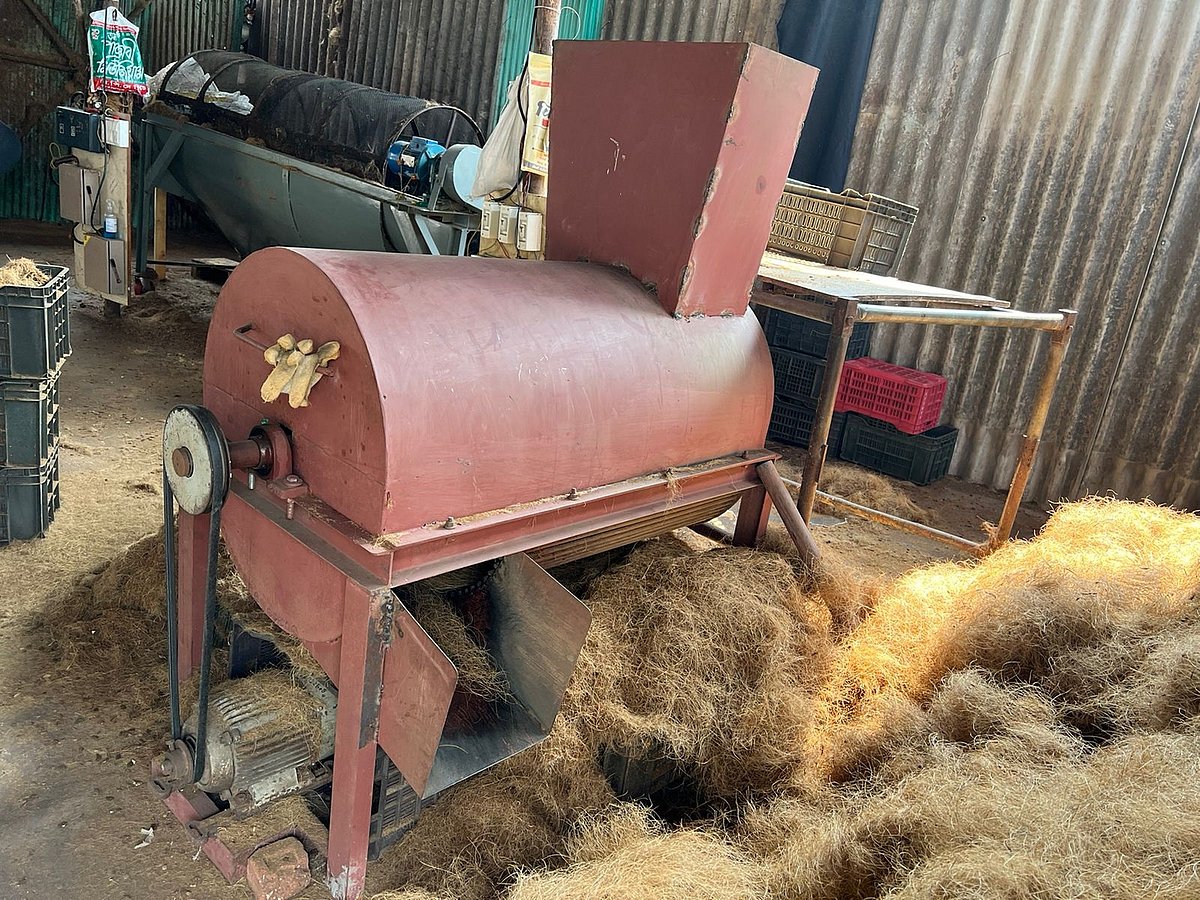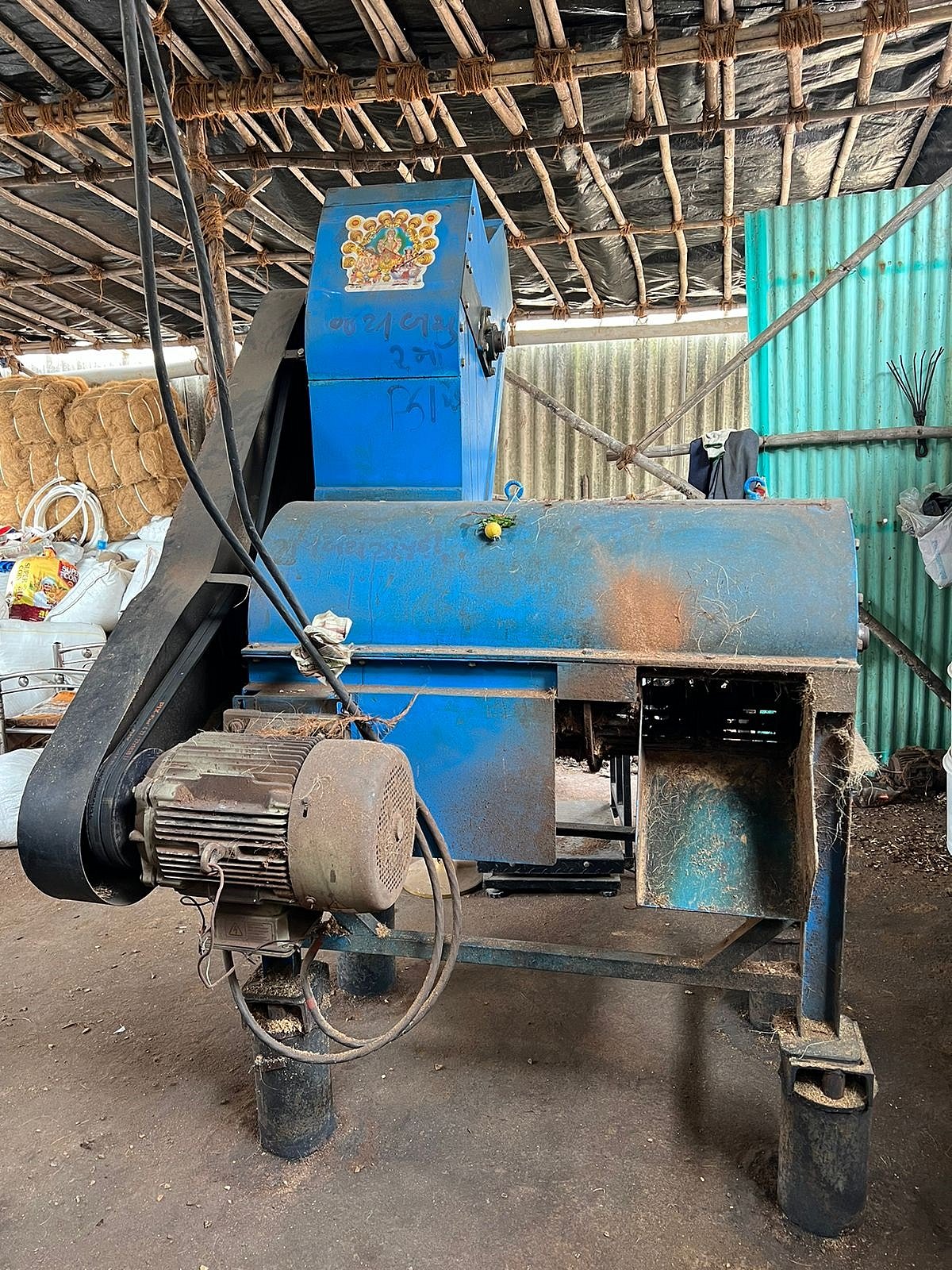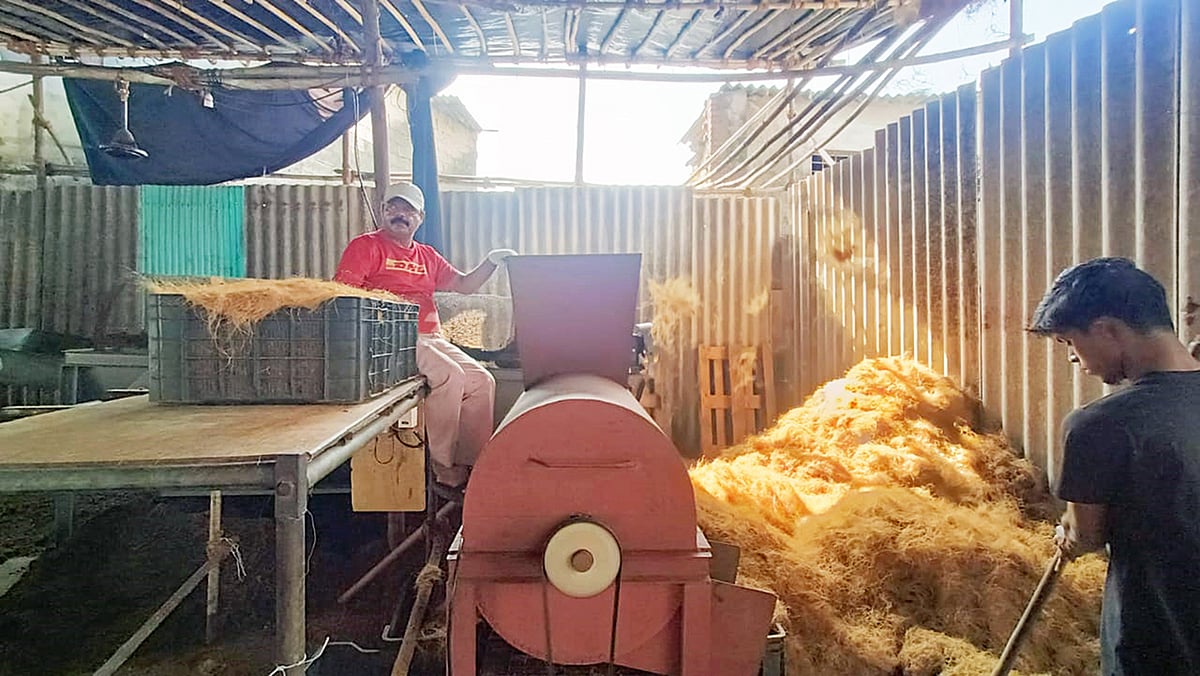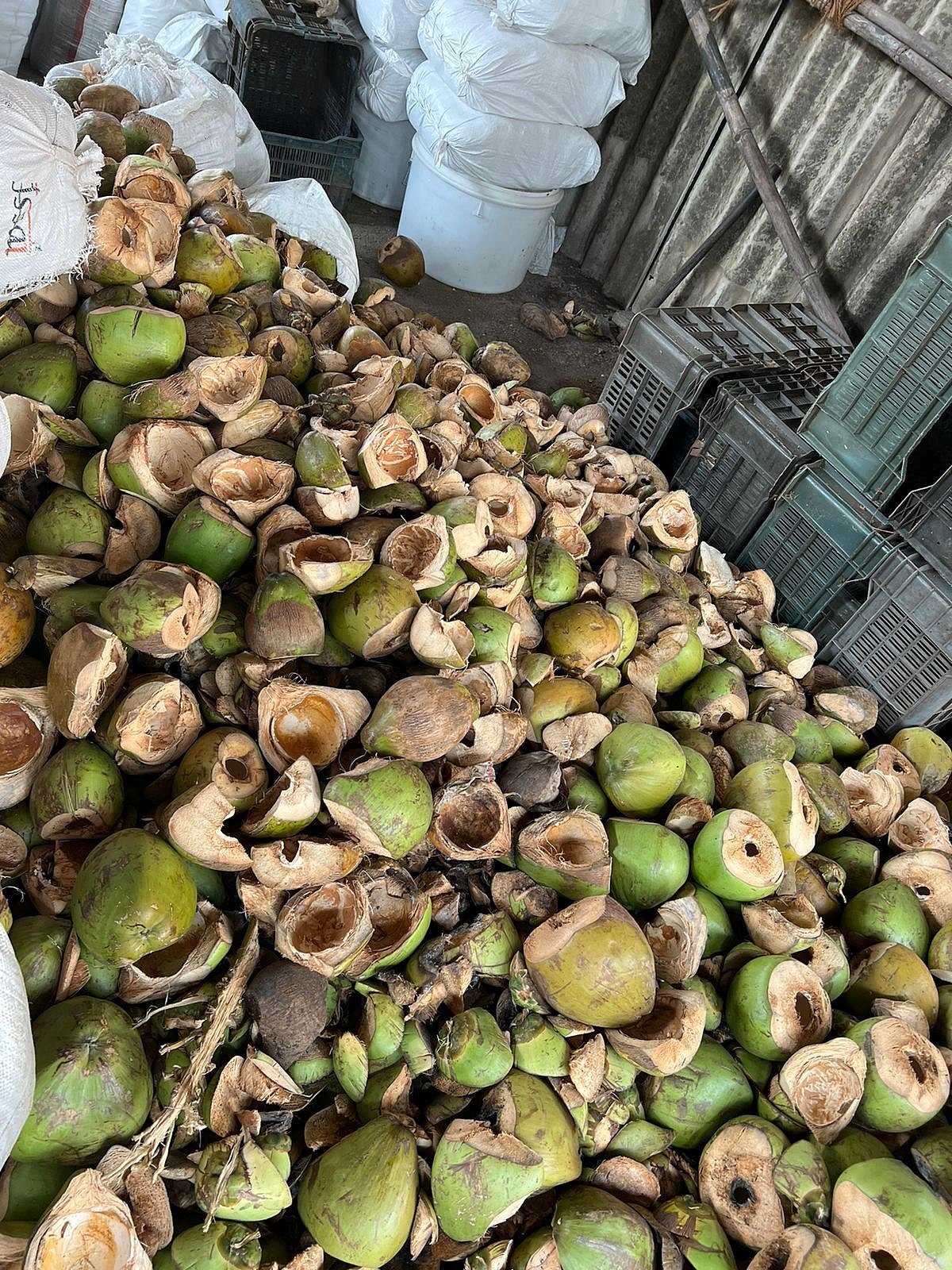When sanitary inspector- Anil Rathod spotted a youth carefully picking up leftover tender coconut shells and loading them in a delivery tempo in Mira Road, he was curious to know what he was up to. Rathod met the youth who identified himself as Himanshu Patel- a 27-year-old youth who along with his father-Girish Patel had set-up a mini processing unit in Bhayandar where they had been recycling the collected green coconut shells into organic manure and curled coir (fibre) ropes for the past eight months.
MBMC ties up with entrepreneur
Realising the importance of the sustainable technique, Rathod immediately informed his higher-ups. A team from the sanitation department of the Mira Bhayandar Municipal Corporation (MBMC) visited the unit and after consultations with the civic chief decided to tie up with the entrepreneur by providing him space and required infrastructure to increase the recycling capacity.

The fibre and coir pith are then separated using the screening machine. | FPJ
A commerce graduate, Himanshu Patel said, “ I and my father did enough research on the subject before setting up the process unit having a capacity to recycle 10 tonnes of leftover coconut shells. I am delighted that the civic administration has recognised our efforts by showing keen interest in joining hands to take up the project to the next level.”
Initiative in line with 'the Reduce, Reuse and Recycle' principle
“Our thrust has always been on the Reduce, Reuse and Recycle process. Modalities are being worked out with the entrepreneur to enhance the existing recycling capacity of turning leftover coconut shells into organic manure and ropes which will not only be a productive source for the society but will also reduce the burden of coconut waste which ended up unused at the dumping ground,” said municipal commissioner- Sanjay Katkar.

In the first stage of the cost effective and eco-friendly technique, the empty coconut shells are fed into the hopper of an extraction machine for grinding and pressing it to powder form. | FPJ
Out of the 550 tonnes of garbage generated by the twin-city, more than 40 tonnes comprises of empty coconut shells. The trend of drinking tender coconut water increases during the summer season and so does the quantity of discarded shells, which are often seen littering street corners, becoming breeding ground for mosquitoes.
About the technique
In the first stage of the cost effective and eco-friendly technique, the empty coconut shells are fed into the hopper of an extraction machine for grinding and pressing it to powder form. The fibre and coir pith are then separated using the screening machine. The washed coir pith is spread out in thin layers for drying either under the sun or using mechanical dryers which helps reduce the moisture.

Before the spinning process, the fibre is put through a willowing machine, which loosens it and makes it more flexible threads which are put together to produce bundles of string ropes. | FPJ

The trend of drinking tender coconut water increases during the summer season and so does the quantity of discarded shells, which are often seen littering street corners, becoming breeding ground for mosquitoes. | FPJ
The end product is a lightweight, fluffy material that can hold water and air, making it ideal for use in agriculture/ horticulture farms, greenhouses and as a soil replacement in container gardening. Before the spinning process, the fibre is put through a willowing machine, which loosens it and makes it more flexible threads which are put together to produce bundles of string ropes.







